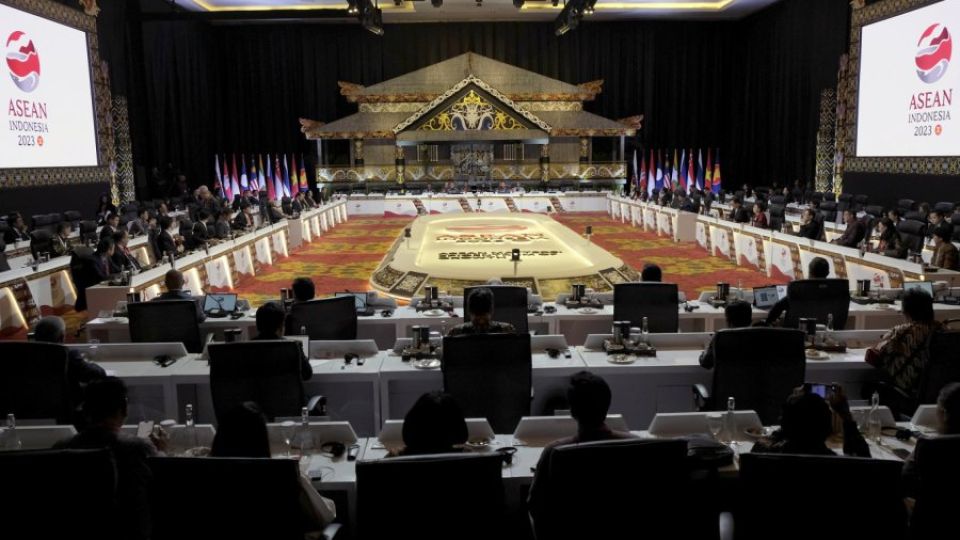May 5, 2023
JAKARTA – After decades of expanding cross-border flows of goods, services and capital, economic globalization has come into question. Terms suggesting reversal of the trend including geoeconomic fragmentation, decoupling, deglobalization and “slowbalization” have become common.
For some, global economic fragmentation is already here. They point to slowdowns in foreign direct investment (FDI) and shortening of supply chains a la reshoring, nearshoring and friend-shoring. Concerns about supply-chain resilience, rising geopolitical tensions and technological rivalry fuel inward-looking policies further.
We call for caveat emptor for two reasons.
First, the data and evidence cannot confirm that the setbacks are structural as opposed to cyclical; the magnitude itself is still being debated. Intent to relocate business operations does not always translate into action. Investments are costly and sticky, and intangible networks and expertise are neither portable nor replicable, at least in the short term.
One such example is Apple in China, whose enormous machinery stock and established supplier pool has left the company with “few viable paths out and none in the short term”, according to experts and former executives.
Second, throughout history, globalization was neither a preordained outcome nor an uninterrupted process. It was driven as much by government policy as business actions. In the same vein, deglobalization is not a fait accompli; its future trajectory depends on policy and business choices made today and tomorrow.
Attracting 12 percent of global FDI and contributing 8 percent of global exports, ASEAN has a key role and significant interest in shaping that trajectory. As long-term beneficiaries of globalization, its member states will bear the effects of global supply chain restructuring, good or bad, and have a stake in preserving global trade and integration. For ASEAN, the long-term risks and threats of global economic fragmentation far outweigh its short-term opportunities. The restructuring of trade, production and investments away from China may represent some opportunities,
but this is likely to be uneven, benefiting only a few member states with specific characteristics, and be limited in scope and scale. Once set in motion, the same policies that divert trade and investments away from targeted countries at present may have indirect effects on ASEAN, as in the case of Vietnamese apparel and footwear exporters to the United States, or be imposed on ASEAN tomorrow, harming the region by way of a ricochet.
In a deglobalized world, flows of products, capital, technology and ideas, all contributing to raising output and productivity, will be constrained, leading potentially to competitive escalation. Already under pressure post-COVID, fiscal resilience may take a further toll due to more generous incentives chasing after fewer investment dollars.
Furthermore, market bifurcation and supply-chain decoupling, characterized by new, diverging standards, as well as preconditions including non-economic ones, will inadvertently undermine market access and supply-chain opportunities and participation. Less developed members will be at risk of lagging further behind.
Lastly, weakened multilateral rules and institutions will reduce the space for ASEAN countries to seek redress or influence future trajectories. The region and its individual members will be in a disadvantaged position dealing with the might when there is no viable alternative. This is the predicament faced not only by ASEAN but also other nations.
All these call for a proactive and unified ASEAN strategy toward global economic fragmentation.
It is vital that an ASEAN strategy to tackle global economic fragmentation is premised upon its collective interest. It starts and ends with the goal of safeguarding the effectiveness, hence relevance, of ASEAN as an integrated, coordinated platform that is greater than the sum of the parts.
An effective ASEAN strategy does not necessarily negate national actions undertaken by some to seize the opportunities from global economic fragmentation. Nevertheless, the latter will still need to be complemented by structural reforms, including improvements in regulations and implementation, infrastructure and connectivity, human capital and innovation capabilities, and more recent imperatives from strengthening of digital trust and ecosystem to the accelerated transition to a carbon-neutral economy.
ASEAN member states need to consider how their respective national competitiveness complements each other and how this can be configured regionally for optimal impact. Centering market integration efforts around industry-specific regional value chain development can position ASEAN as a resilient and trusted hub within global and regional production networks. This resonates with both parts of Indonesia’s ASEAN 2023 chairmanship theme of “ASEAN Matters” and “Epicentrum of Growth”.
Strategic-level conversations on the impact of global economic fragmentation on ASEAN are urgently needed; ones that transcend national and sectoral interests and recognize the interplay among politics, security and economics. There is no better time to tackle this challenge head on, as ASEAN formulates its post-2025 vision and participates collectively or as individual countries in dialogue and cooperation platforms like the Group of 20 and the Indo-Pacific Economic Framework for Prosperity.
ASEAN can leverage its relative neutrality to engage like-minded actors on multilateral and plurilateral platforms to shape the discourse on the future of economic globalization. Such efforts can target not just state but also non-state actors, with whom ASEAN may have shared interests. Already, deepening geopolitical tensions are worrying corporate leaders, and the more vocal ones are calling on the US and China to repair their bilateral relations.
What lies ahead could be a fundamental rewiring of how the global economy works. It is far too important a development to be left to descend into a lose-lose situation. ASEAN simply cannot afford to be a reactive bystander.


